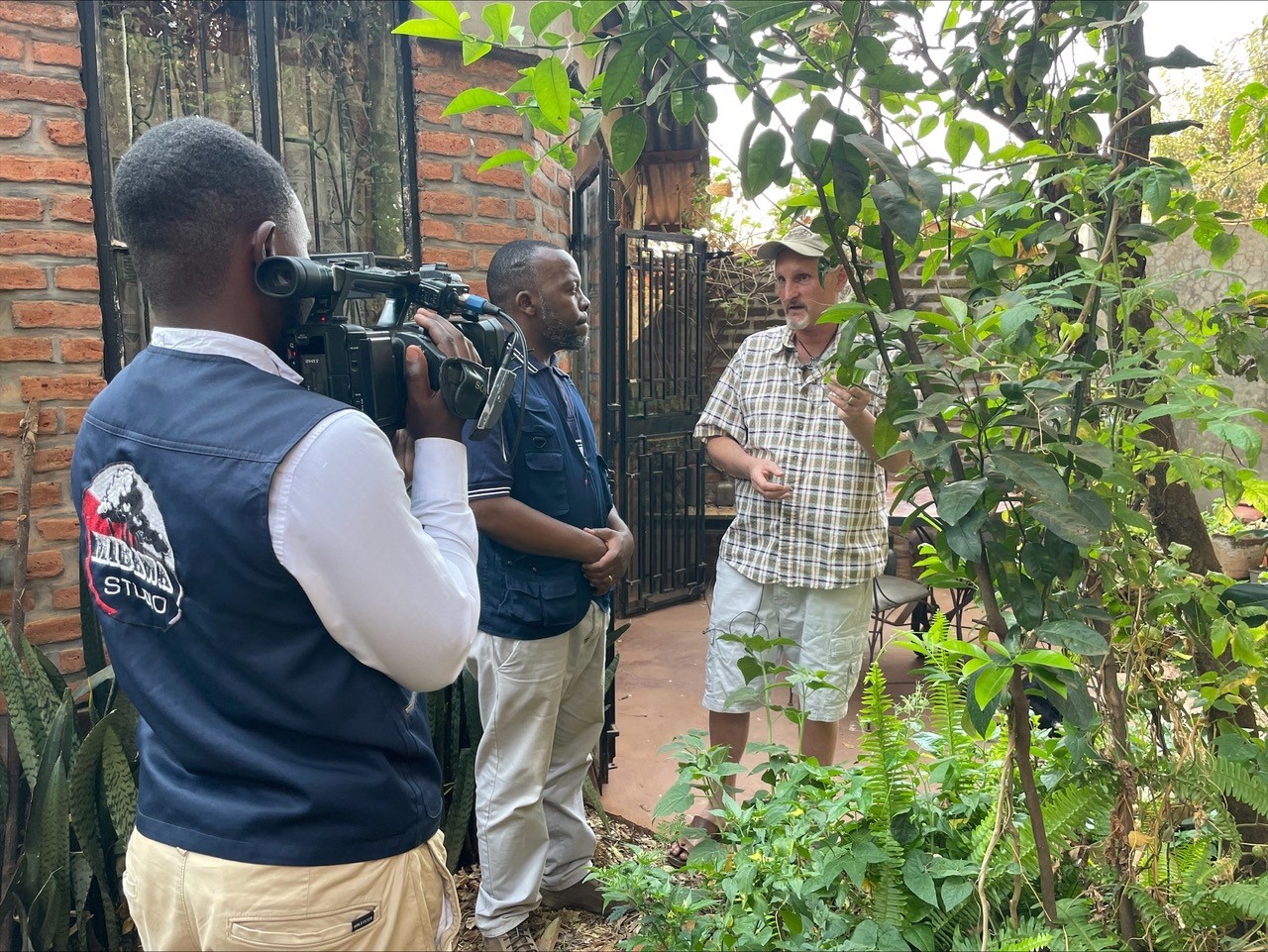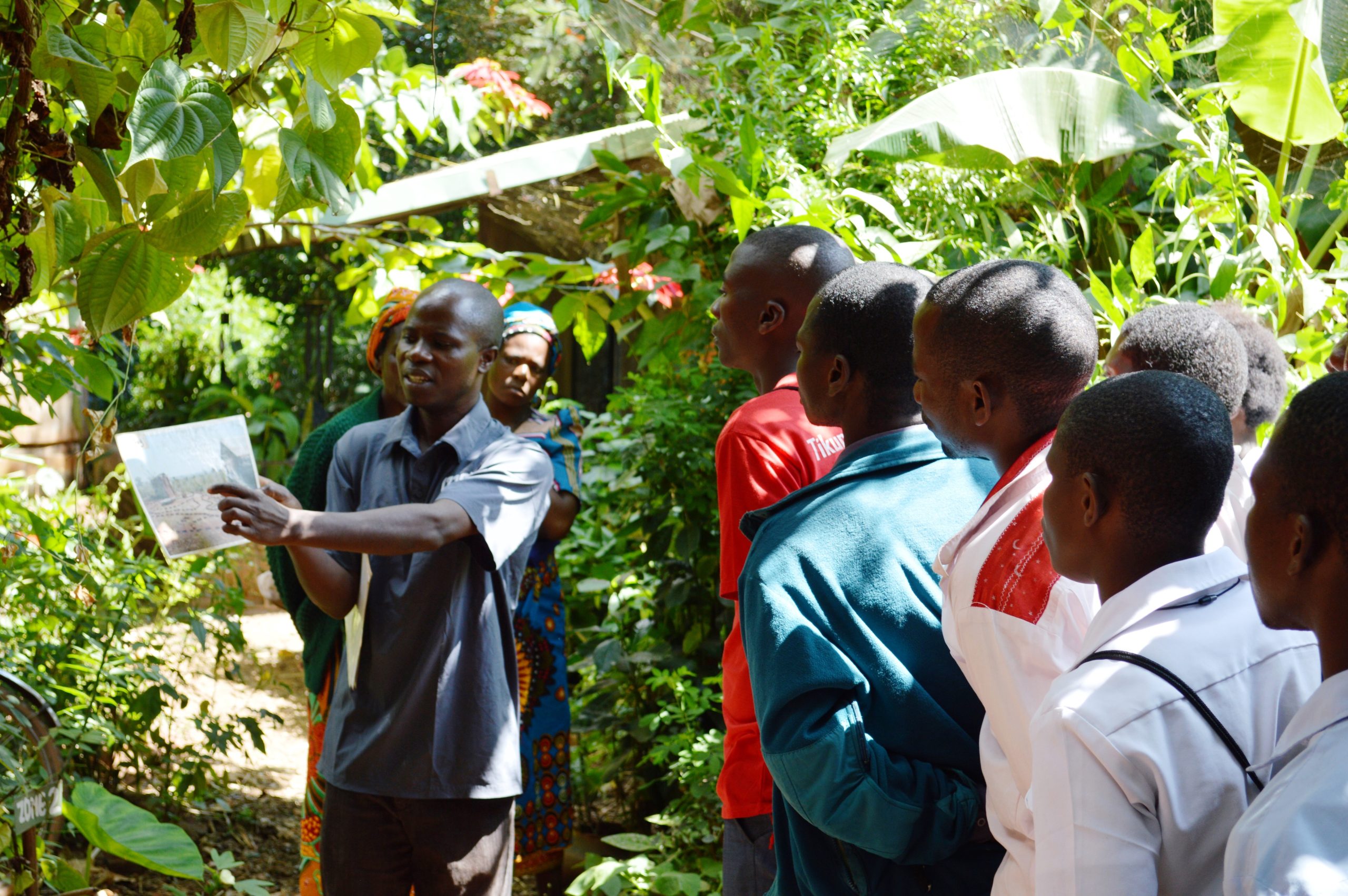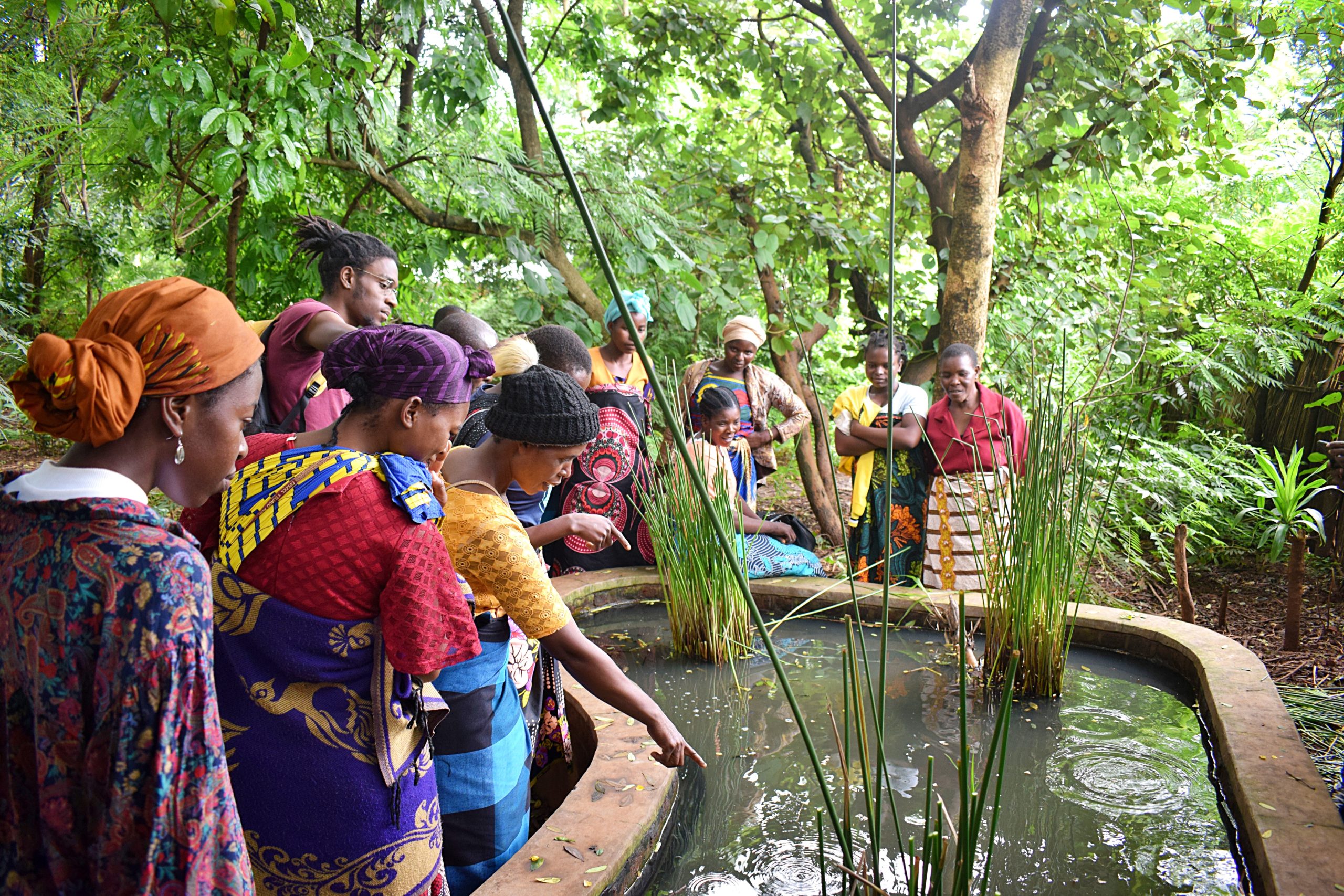Never Ending Food Permaculture
Malawi
NeverEndingFood is consisting of 3 homes, a classroom, small livestock, gardens, ponds, bee hives, forests, and fields in which, through Permaculture, they raise hundreds of species indigenous to the area: foods, fuel, fertility, fencing, fodder, medicines, and many more. Permaculture is all organic.
Lead Organization
NeverEndingFood is a family home and farm for Stacia, Kristof, and Khalidwe Nordin from which they do community outreach.
Country
Malawi.
Timeline
The Nordins began implementing Permaculture practices in 1997 through education, research, certification, and teaching based at one of Malawi’s main agricultural research stations. In 2003, they established NeverEndingFood, which has been innovating sustainable solutions ever since.
Funding
USD 20,000 for infrastructure and USD 10,000 for annual running costs. The project is self-funded by the Nordins’ salary and through private donations.
Mission
NeverEndingFood, is the Nordin’s home and community-based permaculture demonstration in Chitedze, Malawi where they use and showcases many low-input, high impact ecological technologies for organic agriculture, water, sanitation, food and seed multiplication, processing, storing and sharing, sustainable energy, and much more. They have reached thousands of visitors in surrounding villages and a wide variety of organizations locally and internationally, they support an internship programme for their community to certify interested people in Permaculture, and partner with universities to host student attachments and conduct online sessions. They are involved in several organizations related to these topics to spread solutions that address root causes of problems.
Context
Kristof and Stacia Nordin, founders of NeverEndingFood Permaculture, were invited to the country by the Government of Malawi to work on HIV-related issues in 1997. At that time about 15% of the adult population were living with virus. Despite the high rate of HIV, communities in Malawi often requested more food and agricultural support than HIV interventions due to widespread denial about the disease and high levels of food insecurity. In the late 90s, about 65% of the population was classified as poor and unable to meet their basic needs, with households affected by HIV facing the most dire conditions. Malawi has a rainy season that lasts 3 to 4 months, during which almost all agricultural production takes place. Most farming focuses on maize, a crop introduced through slave trade and colonialism around 1850, even though there are hundreds of indigenous species that can be harvested year-round. Malawi’s agriculture faces challenges due to over-reliance on maize monoculture, poor water management, and degraded soils, all of which lead to nutrient depletion in the soil, inconsistent yields, and food and nutrition insecurity. As a result, the Nordins worked on raising awareness about HIV while taking a holistic approach to boosting immune systems through Permaculture, an approach that designs human systems for sustainable living.
Main beneficiaries
Their community. Their immediate neighbors and land are their focus.
The project reaches thousands of visitors from surrounding villages but also from local and international organizations, often by word of mouth and social media. They also host interns from their community (from 3 months to 2 year internship) and students from partner universities. Often the interns are youthful (under 35) but they’ve had a few older teachers also intern with them during their summer holiday.
Strategy
Objectives
NeverEndingFood follows the ethics and principles of Permaculture, which align closely with the principles of agroecology. The main difference between the two is that while agroecology focuses primarily on sustainable agricultural practices, Permaculture encompasses a broader approach, designing for all human needs, including sustainable buildings, energy, water, sanitation, medicines, financial systems, and more.
The three Ethics of Permaculture are:
1. Care for the Earth (Earth Care)
- Earth Care is a holistic approach to protecting the planet by recognising the interconnectedness of all elements in our environment. It focuses on conserving resources, preserving biodiversity, restoring damaged landscapes, and using sustainable practices.
2. Care for people (People Care)
- People Care aims to enhance individual and community wellbeing by recognising the connection between human and ecological health. It fosters strong communities by empowering individuals to attain better nutrition, overall health, and a more sustainable and equitable world.
3. Fair share of resources (Fair Share)
- Fair Share focuses on ensuring that everyone has equitable access to resources by balancing consumption and production. It encourages sharing surplus resources, thoughtful consumption to support sustainability, community cooperation, reduced waste, and social equity through practices like redistributing resources, adopting zero-waste strategies, and supporting fair trade.
Activities
Featured principles and elements:
Co-creation of knowledge, recycling, input reduction, land and natural resource governance, synergy, diversity, social diets and traditions, and economic diversification
- The activities at NeverEndingFood address all 13 principles and 10 elements of agroecology, though some are emphasised more than others. When the Nordins arrived at what would become NeverEndingFood, they found the soil to be poor and compacted, the plants unhealthy, and only a few trees. Most of the area consisted of empty maize plots and a dried-up, diseased tomato garden. Tree growth had been stunted due to the negative impact of human activities such as clearing, sweeping, and burning. In order to restore soil health through reintroduced organic matter and nutrients, they implemented several key changes and practices.
- In August, their first month, which falls in the middle of the dry season, the Nordins focused primarily on observation and design. Immediate activities included adding organic matter to the soil, harvesting grey water, building a composting toilet, encouraging the community to stop burning plant residues, and collecting seeds and organic matter from local sources, like roadsides and market scraps. Relying heavily on their existing knowledge and experience from implementing and teaching Permaculture at the research station for 6 years, the Nordins concentrated on areas that were relatively easier to heal, making progress within the first month. In more severely degraded areas, they either needed to do significant digging or wait for the rainy season so they covered those areas with organic matter to protect the surface and let nature start to heal itself. They created a map, design, and action plan, prioritising tasks to manage both the work and future harvests effectively.
- In months 2 and 3, they continued with essential earth restoration and seasonal tasks, including preparations to harvest rainwater, as rains would start in around the fourth month. They concentrated on native plants, fungi, and animals, engaged with the local community, watered and harvested from garden beds, and expanded the restored land by creating new pathways and beds while adding organic matter. The design and action plan were regularly updated to track progress and address evolving needs.
- By month four, the rainy season began, lasting about 3-4 months, and the area started to thrive due to the preparations made with organic matter, seeds, and water harvesting. This period involved learning about plant growth, harvesting, preserving excess produce, and returning organic matter to the soil through compost, the composting toilet, worm farms, or mulch.
- In the second year, they doubled the amount of land under restoration and production and began implementing most of their plan, including establishing a seed bank, integrated gardens, ponds, forests, and fields with diverse plants, fungi, trees, and small livestock such as chickens, rabbits, and beehives. Students and interns joined to learn and apply new skills, and one intern stayed on to build their management capacity.
- Over the years, the land continued to heal and strengthen. The seed bank grew, allowing more indigenous species to be shared, and harvests increased, reducing the need for purchases and supporting the Fair Share ethic. By year 10, the farm expanded to over 1.2 hectares (3 acres), requiring additional restoration using resources from already restored land. In year 15, NeverEndingFood partnered with African Vision Malawi to build a rammed earth classroom with integrated glass bottles and with the Rainwater Harvesting Association of Malawi to install a new type of rainwater harvesting tank that requires less input. They also expanded the fishponds, and most of the land was fully healed and thriving.
- Over time, challenges have also arisen, including external pressures on natural resources, such as illicit tree cutting, unmanaged free ranging of animals, cultural barriers to sustainable practices and diversified diets, and increased pollution, especially from plastics. Business practices and government policies often exacerbate these issues through misguided approaches and the stigmatisation of indigenous resources. To address these challenges, NeverEndingFood puts significant effort towards policy advocacy, community outreach to promote active involvement in community improvements, and promoting the use of online resources.
Monitoring and Evaluation Methods
NeverEndingFood keeps detailed farm and visitor records but does not have a formal monitoring and evaluation framework. Instead, they rely on continuous observations, team discussions, and adaptable planning to make decisions and adjust their approaches as needed.
Outcomes and Lessons Learned
Outcomes
The organisation has earned a credible reputation both locally and internationally, leading to a steady stream of visitors, interns, and students. They receive invitations to speak, advise, and contribute to documents, programmes, and policies. Many of the former interns, training participants, and visitors have remained connected through joining the Permaculture Network in Malawi. Some have secured Permaculture jobs, obtained diplomas and degrees, acquired land for their own projects, and one even became a high-level Minister.
Lessons Learned
Through their practice and sharing of Permaculture, the Nordins learned the importance of:
- Strategic Coordination and Collaboration: Working with diverse people can address many societal problems.
- Persistent Problem-Solving: Facing challenges from different angles and not giving up is crucial for driving positive change.
- Community Engagement: Collaborating with both local and sector-specific communities to make improvements is essential.
- Continuous Innovation: Regularly rethinking, reflecting, and sharing solutions and problems.
Overall, they realised that a Permaculture mindset and lifestyle can address many global issues by applying thoughtful design based on Permaculture ethics and principles. They also noted that the restoration of indigenous species and reduction of fossil fuel plastics need more attention in Permaculture and Agroecology and hope more people will integrate these aspects into their work.



